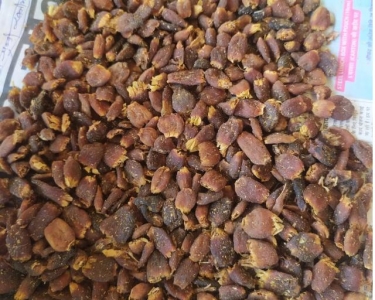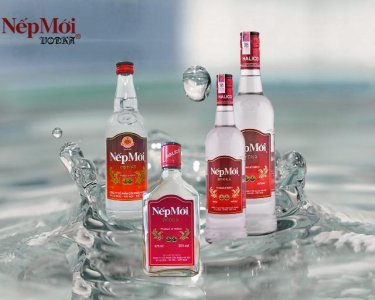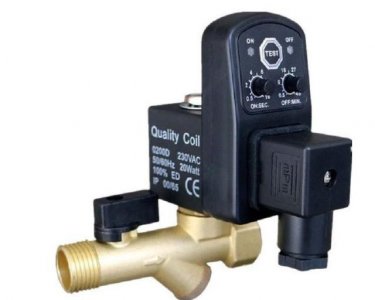Computer Accessories
Couldn't find the product you want?
Fill out this form to request the product.
Products You May Like
Export from Mayotte
Mayotte is an insular department and region of France officially named Département de Mayotte. It consists of a main island, Grande-Terre (or Maore), a smaller island, Petite-Terre and several islets around these two. The archipelago is located in the northern Mozambique Channel in the Indian Ocean off the coast of Southeast Africa, between northwestern Madagascar and northeastern Mozambique.
The economic activity of Mayotte is based primarily on fishing and livestock raising. The country exports big quantities of fresh fish, frozen fish, lobsters, caviar, squid as well as coral calcium for international drugstores.
The economy of the country is dominated by an productive agricultural sector operating largely outside the country, motivating local manufacturers and sellers. Agricultural products, exported abroad, include sweet potatoes, vegetables, corn, coffee and tea, sugarcane, tobacco and tobacco substitutes, cotton, tea, peanuts, rice, water, pigs, cattle, poultry.
The island is reach in natural resources. That is why, the island can export large quantities of construction materials and engineering, such as: building stones, cement products, ceramic materials, chemical and plastic items, etc.
The top export destinations of Mayotte are: France, Madagascar, Comoros, Mozambique, Tanzania, Kenya and Burundi.
Import to Mayotte
The economy and future development of the island are heavily dependent on French financial assistance, an important supplement to GDP. In such a way, the island is not self-sufficient and must import a large portion of its food requirements, mainly from Metropolitan France.
The location of Mayotte places it near beautiful rivers, which provides a valuable means of transportation but also needed water for the agricultural industry. In such a way, the country imports small boats, such as canoes and kayaks, rigid inflatable boats, water towers and water mills.
The government of the country is focused on establishing of functional roads and sea connections to build up new international relations. A good transportation system is the key for good trade relations with EU, Asian and African countries. For realizing this aim, the country imports construction materials and engineering appliances, machinery and mechanical appliances as well as different wood items.
Due to the fact, that the country does not produce any means of transport, Mayotte imports them from abroad. Cars, trucks and SUV are mostly imported from France and Australia.
The top import origins are: France, Madagascar, Comoros, Mozambique, Tanzania, Kenya, Burundi and Australia.
Computer cables and connectors section welcomes sellers and buyers from worldwide.
If you are intending to start online sales of computer cables but don't know where to sell - Export Portal Online Trade is your best solution!
Selling and buying naturally becomes easier, as here at Export Portal, we understand the needs of both sellers and buyers!
Browse our rich assortment of computer cables and connectors:
- USB cables and connectors
- Audio cables and connectors (headphone jack, digital optical cables)
- Video cables (VGA, DVI monitor port, S-Video cables)
- Audio and Video cables (RCA connector cables, HDMI cables, DisplayPort connectors)
- Data cables (Firewire , eSATA cables)
- Networking related cables (Ethernet cable)
Make selling easier with Export Portal! Sell and buy a wide range of computer cables here – get the best offers!
Customs requirements of Mayotte
Customs Office in France
Website: http://www.douane.gouv.fr/
Email: r-ferney-voltaire@douane.finances.gouv.fr
Address: Route de Genève / F - 01216 Ferney-Voltaire
Phone: +33 (0)9 70 27 31 81 / +33 (0)9 70 27 31 84
Mayotte is an overseas department of France (Département d’Outre-Mer). It attained this status on 31 March 2011. The French government plans to bring the laws and regulations of Mayotte in line with those of the rest of France and make the country visible for the international trade.
Tariffs
Most raw materials imported to Mayotte from non-EU countries enter duty-free or at low rates, while most manufactured goods are subject to rates of between 5 and 17 percent. The tariff schedule is based on the Harmonized System. Besides customs duties, most processed products are subject to additional import charges based on the percentage of sugar, milk fat, milk protein and starch in the product.
Import duties are calculated on an ad valorem basis. This dutiable value is the "transaction value" plus freight, insurance, commissions, and all other charges and expenses incidental to the sale and delivery of the goods to the point of entry into EU customs territory. The invoice price will normally be accepted as the transaction value if the seller and the buyer are not related.
Required Documentation
Any manufacturer, sellers and customer has to prepare a number f documents before the affair is completed. An import/export (Customs duty payment) declaration form must be submitted to Japan Customs with the following documents:
- Invoice;
- Bill of lading or Air Waybill;
- The certificate of origin (where a WTO rate is applicable);
- Generalised system of preferences, certificates of origin (Form A) (where a preferential rate is applicable);
- Packing lists, freight accounts, insurance certificates, etc. (where deemed necessary);
- Licenses, certificates, etc. required by laws and regulations other than the Customs Law (when the import of certain goods is restricted under such laws and regulations);
- Detailed statement on reductions of, or exemption from customs duty and excise tax (when such reduction or exemption is applicable to the goods);
- Customs duty payment slips (where the concerned goods are dutiable).
Labeling
The exported or imported products are obliged to have the following information on their labels:
- name, trade name or description;
- name and complete address of manufacturer/packer, importer, country of origin of the imported food;
- net weight, number or volume of contents in metric units;
- distinctive batch, lot or code number;
- month and year of manufacture and packaging;
- month and year by which the product is best consumed;
- information about pharmaceutical and industrial products must be in English;
- if food products have been genetically modified (GM) this must be indicated in the label.
Sources:





